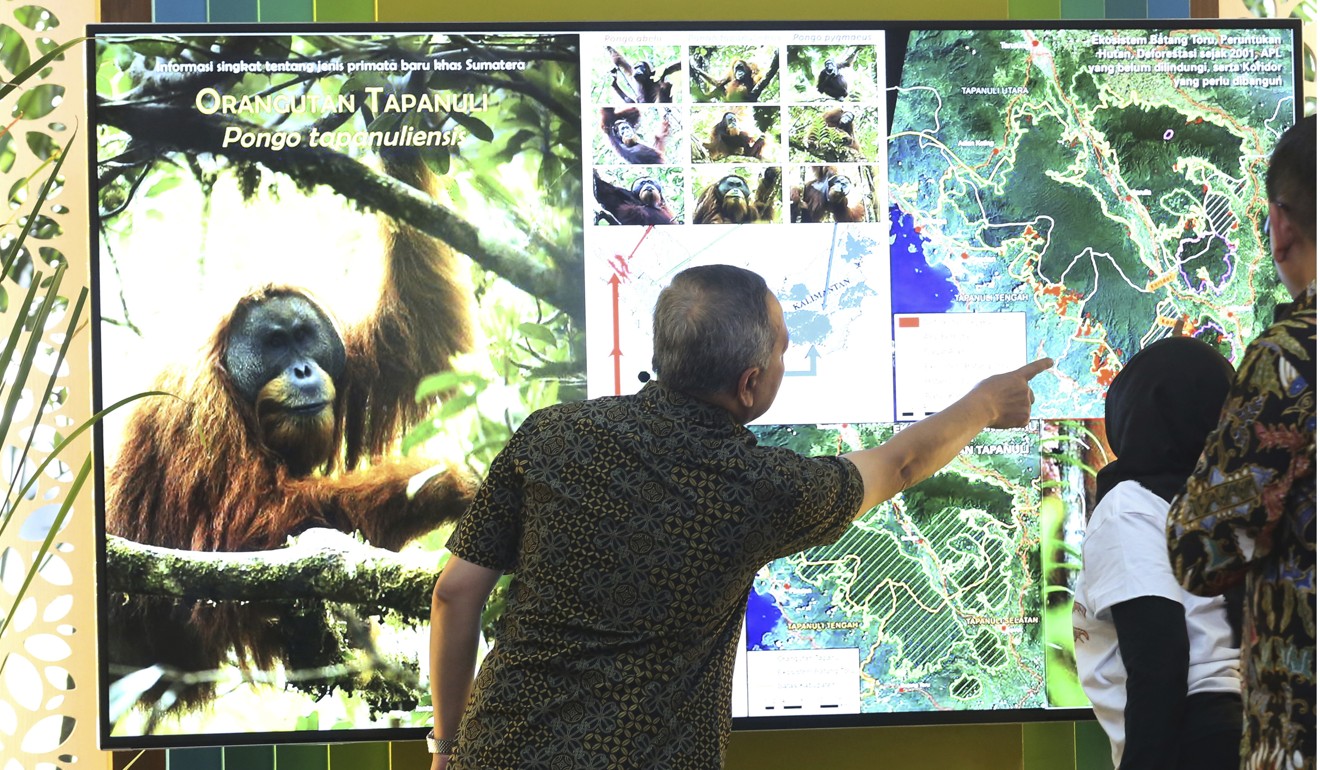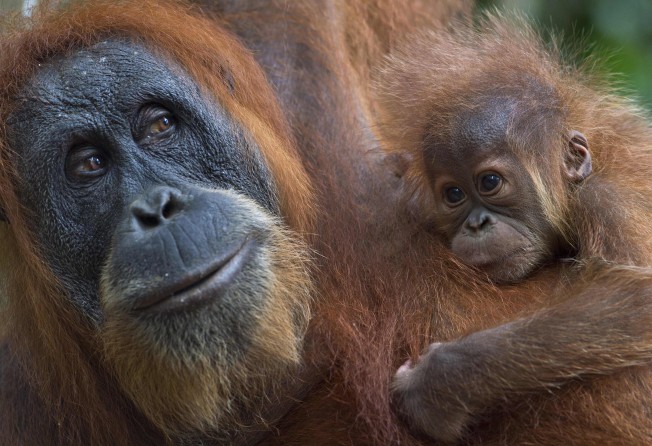
Scientists say China-backed dam threatens orangutan habitat
Report claims the dam in Sumatra will flood part of the habitat and may make it impossible to ensure the survival of a new orangutan species

Scientists are calling for the cancellation of a Chinese-backed hydroelectric dam in Indonesia that may threaten the habitat of a newly discovered orangutan species, of which there are only about 800 animals.
In the journal Current Biology, the experts say the 510-megawatt dam in Sumatra will flood or otherwise alter part of the habitat and probably make it impossible to take a crucial step towards ensuring the species survives – reconnecting fragmented forests the primates are spread across.
China’s state-owned Sinohydro is building the dam, which is reportedly financed by Chinese loans. Critics of the project say it is part of China’s “Belt and Road” plans to carpet Asia with Chinese-financed infrastructure and extend its economic and political influence.
Scientists announced the discovery of the third orangutan species, Pongo tapanuliensis, in November. The orangutans, with frizzier hair and distinctively long calls for the males, were previously believed to be Sumatran orangutans. Without special protection, they are in danger of rapid extinction, scientists say.

“It’s appalling to think that within our lifetimes, a new great ape species could be both discovered and driven to extinction,” said Serge Wich, a professor at Liverpool John Moores University, who was involved in identifying the new species.
The scientists also urged that the remaining habitat in the Batang Toru forest of northern Sumatra be given strict conservation protection and that forest corridors be created to link separated populations. One way to do that, they said, is to close a section of the road between two main forest fragments.
The Batang Toru orangutan was the first great ape species to be proposed by scientists in nearly 90 years. Previously, science has recognised six great ape species: Sumatran and Bornean orangutans, eastern and western gorillas, chimpanzees and bonobos.
The International Union for Conservation of Nature classified Bornean orangutans as critically endangered in 2016 due to a precipitous population decline caused by the destruction of their forest habitat for palm oil and pulp wood plantations. Sumatran orangutans have been classified as critically endangered since 2008.
The scientists writing in Current Biology said orangutan subpopulations need to number at least 200 to have a chance of surviving a century and more than 500 for longer-term survival.